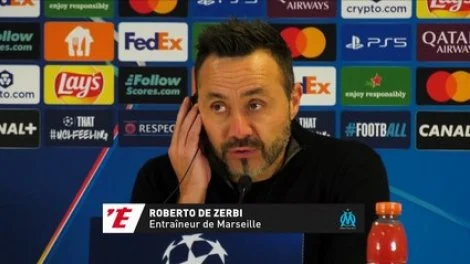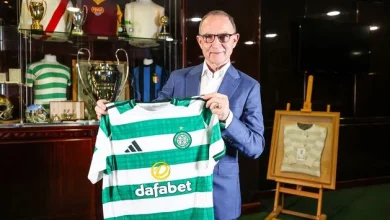Trends-IE
De Zerbi : «On a fait un grand match» – Foot – Ligue des champions – OM

L’entraîneur de Marseille, Roberto De Zerbi, livrait son analyse du match après la victoire (2-1) de son équipe face à Newcastle, ce mardi, lors du match de la 5e journée de la phase de ligue de la Ligue des champions.
Vidéo suivante dans 5 secondes





